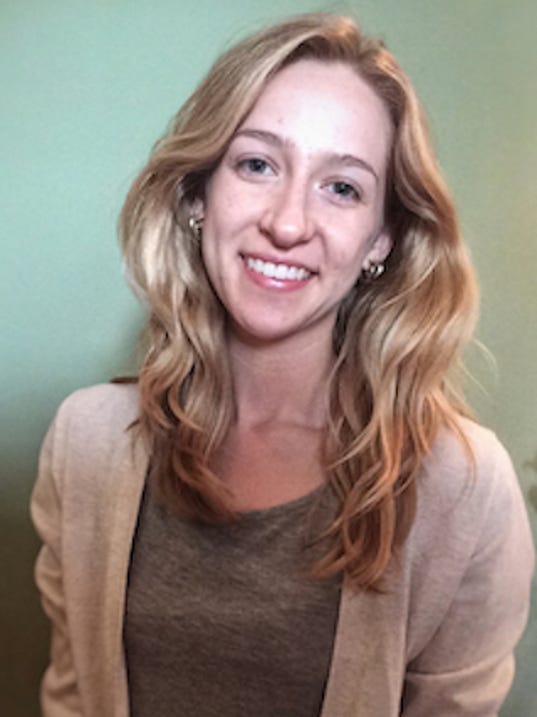
Whether it’s at kindergarten craft tables or lecture hall podiums, here’s what we know about great teachers:
They amplify students’ voices. They seek to understand the whole student, what tickles their sense of being. They are service-oriented, often putting the needs of the classroom above their own. They work long hours for brief, informal recognition to cultivate curious, competent individuals. And they do it out of love.
Unfortunately, we also know the opposite: Educators forced to teach to standardized tests, squeezed into uniform teaching models under a scrupulous educational bureaucracy. They’re on from 8 a.m. to 3 p.m., in a classroom of linear desk rows and silent, obedient kids.
It’s a tricky equation, navigating all this while still meeting the needs of distinct, varied students.
Lucky for us, here in the greater Green Bay area, we get the chance to experience a new vision of great teaching with an April visit from education specialist Bettina Love. And she’s doing so through hip-hop.
“The radio plays the same 25 songs over and over again. I’m not talking about that hip-hop. I’m talking about the hip-hop that is ingenious. I am talking about the students … with a soundtrack playing in their bodies. I’m talking about hip-hop sensibilities.”
I know what you’re thinking. Hip-hop what? Maybe a handful of songs have popcorned in your head, most likely the mainstream names Love avoids. Yet what you’re missing is the vivid quilt of hip-hop culture, each thread a living, breathing story. Love sees these stories woven into the fabric of students’ identities, students the education system has a dubious history of short selling.
Love’s hip-hop pedagogy goes beyond traditional tutors or mentorship for urban youth. She created “Get Free,” a hip-hop civics curriculum fusing culturally relevant, lived experiences into strategic lesson plans and classroom projects. The model is simple, yet (somehow) revelatory: Cultivate spaces for students to be their authentic selves, to learn and express their individual and cultural lives. Likewise, empower educators who interact with them beyond a test score while investing in changing the numerous injustices operating in their lives.
Consider this: Music ciphers as means to practice listening skills, creative collaboration. Rap to learn meter, rhyme and iambic pentameter. Sound-mixing software as a foothold into computer coding. Break dancers lecturing on gravity, kinetic energy. DJs teaching the science behind sound waves. These aren’t rabbits pulled from a hat. They’re the very activities Love incorporates into her curriculum — with dramatic results. At the Kendezi School in Atlanta — a school Love helped found — its third-through-fifth-grade classes have the highest-performing statewide standardized scores in 2015, using Get Free.
Nevertheless, it’s an uphill battle for Love. Packaging hip-hop for public education is often co-opted, misrepresented or flat-out rebuked. Yet alongside a handful of burgeoning hip-hop scholars, Love is bringing to the table an interdisciplinary pedagogy weaving together well-established fields: sociology, communication studies, media literacy, music, rhetoric, art and dance. When Yale University Press has a hip-hop anthology, Harvard a Hip Hop Research Institute, you know something is brewing.
Love’s work runs in similar veins as other progressive education models like those Green Bay’s Aldo Leopold Community School embraces. So much so that Love’s been invited to give a civics workshop Wednesday at Aldo during which hip hop-based education practices will be highlighted for almost 60 students and teachers. The public also can see her in dialogue with social-justice scholar bell hooks at 4 p.m. Wednesday in a free lecture at Walter Theatre, St. Norbert College. The pair will discuss liberatory education.
Melding culture with pedagogy is a practice we can no longer neglect. As Love describes, these hip-hop sensibilities encompass “a way of knowing, a way of being” that go hand-in-hand with traditional predictors of academic success. Grit, creativity, curiosity, social and emotional intelligence — all measurable traits — are what colleges and major corporations claim to want in their ranks. Teaching in line with how kids experience the world is not just good pedagogy, it’s being a good person.
We could all learn a lesson or two on that.
Amy Mrotek is the program manager and volunteer coordinator at the Cassandra Voss Center, an intersectional gender and identity nonprofit housed at St. Norbert College. She is currently serving an AmeriCorps term of service while freelance writing and copy editing.
[“Source-greenbaypressgazette.”]

